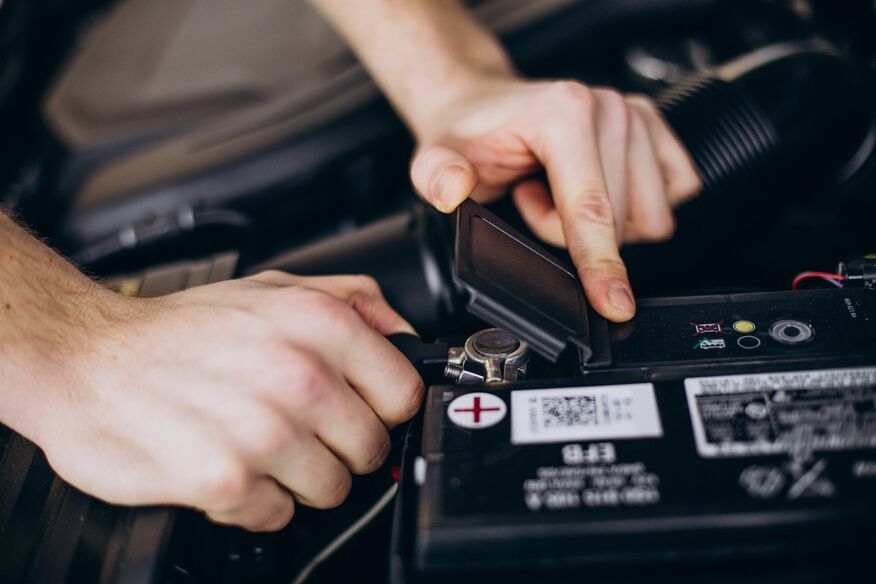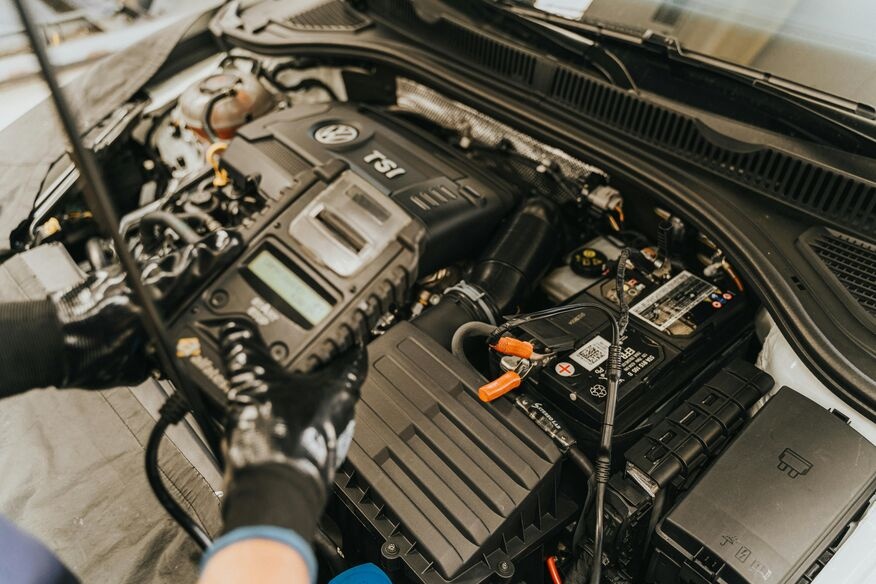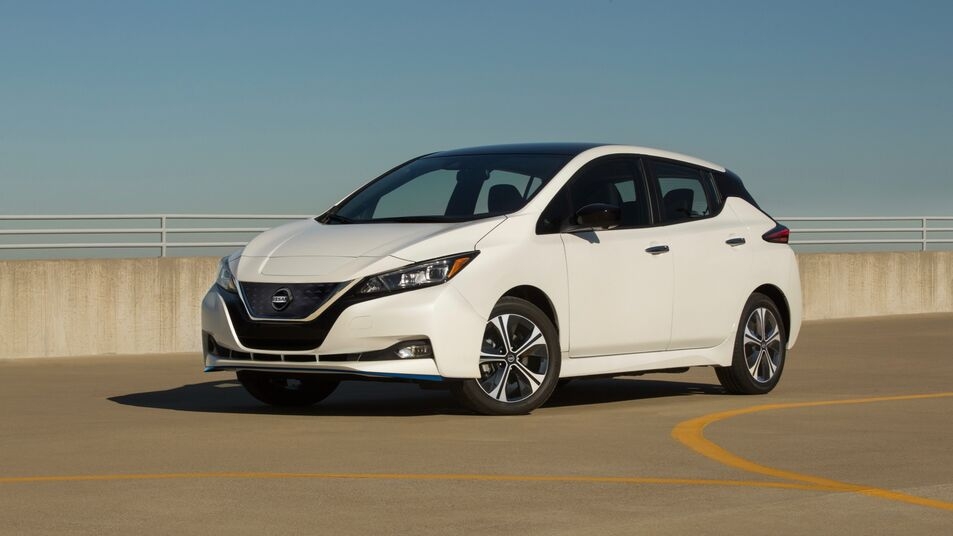Imagine this: you’re rushing to work, you hop in your car, turn the key—and nothing. Dead silence. Did you know that the average car battery lasts just 3-5 years? Yet, tons of drivers—like maybe even you—are caught off guard when their battery gives up the ghost. It’s a hassle no one needs! Understanding your car battery lifespan is key to keeping your ride reliable and dodging those annoying breakdowns. Why risk being stuck on the side of the road when you can stay ahead of the game? In this post, we’ll cover what affects how long a car battery lasts, spot the signs it’s dying, share maintenance tips, and more. Buckle up—let’s get rolling!
Understanding the Role of Your Car Battery
What Is a Car Battery and How Does It Work?
Your car battery is like the unsung hero of your vehicle. It’s the power source that kicks your engine to life and keeps your electrical systems—like your radio, power windows, and air conditioning—humming along. Without it, your car’s just a big, shiny paperweight. So, how does this magic box work? It’s all about chemical reactions. Inside a typical lead-acid battery, lead plates and sulfuric acid team up in a process called electrolysis to store energy. When you turn the key, that energy flows out to start your engine. Pretty neat, huh?
How Long Can You Expect Your Car Battery to Last?
Average Lifespan of a Car Battery
Here’s the scoop: the average car battery lifespan for a standard 12-volt lead-acid battery is about 3-5 years. That’s what the experts at the Battery Council International say, and they’ve got the data to back it up. But hold on—some batteries can hang in there longer if you baby them or live in a nice, mild climate. My buddy’s battery lasted 6 years, and he swears it’s because he avoids extreme temperatures! Still, don’t get too cozy—how long your battery lasts depends on a bunch of factors we’ll dig into next.
Why Do Some Car Batteries Last Longer Than Others?
Key Factors That Affect Car Battery Lifespan
Ever wonder why your neighbor’s car battery seems invincible while yours keeps dying? It’s not just luck—here’s what’s really going on:
- Climate Conditions: Extreme weather is a battery’s worst enemy. In a hot climate, the battery fluid can evaporate, frying the internal battery components. Meanwhile, cold weather slows those chemical reactions essential for power, leaving you with a weak battery. A Consumer Reports study found batteries in extreme cold or heat can lose up to a year of life—yikes!
- Driving Habits: Love those quick 10-20 minute trips? Your battery doesn’t. Short drives don’t give it enough time to hit a sufficient charge, kind of like charging your phone for 5 minutes and hoping it lasts all day. Long road trips, though? Those keep your battery happy and healthy.
- Battery Type: Not all batteries are the same. Standard lead-acid batteries last 3-5 years, but absorbent glass mat (AGM) batteries can stretch to 7 years, and fancy lithium-ion batteries in electric vehicles might even hit 10. It’s all about the battery chemistry!
- Vehicle Electrical Load: Got a car packed with electrical components like a killer sound system or parking lights that stay on too long? That’s a recipe for battery drain. More gadgets mean your battery’s working overtime.
- Routine Maintenance: A little TLC goes a long way. Check those battery terminals for crusty corrosion—it’s a common issue that messes with battery performance. Clean them with baking soda and water, and you’ve got a happier battery. Skip the preventative maintenance, and you’re asking for internal damage.
Signs Your Car Battery Is Dying
How to Tell If Your Car Battery Is on Its Last Legs
Picture this: you’re rushing to school or work, you turn the key, and your car sounds like it’s choking on a popcorn kernel. That’s a slow engine crank, and it’s one of the first signs of a dying car battery. But hold up—there’s more to watch for. Your car battery could be waving a white flag in other ways, and catching these clues early can save you from a dead battery disaster. Here’s what to look out for:
- Dim headlights or interior lights: Ever notice your lights looking more like a flickering candle than a bright beam? That’s a weak battery struggling to keep up.
- Electrical issues: Are your power windows moving slower than a sloth on a lazy day? Yep, that’s another hint your battery’s fading.
- Dashboard warning lights: See that little battery icon glowing? It’s not just decoration—it’s screaming, “Check me out!”
- Swollen or bloated battery case: If your battery looks puffed up like it’s been eating too many snacks, that’s internal damage from heat or chemical reactions. Not good.
- Why should you care? Because ignoring these car battery failure symptoms could leave you stranded on a road trip or in a hot climate where batteries die faster. Fun fact: AAA says nearly 30% of roadside calls are battery-related (yikes!). So, keep your eyes peeled—your car’s counting on you!
Different Types of Car Batteries and Their Lifespans
Which Car Battery Type Lasts the Longest?
Not all car batteries are the same—some are tougher than others, and their average lifespan varies big time. Wondering which type of battery will stick around the longest? Let’s break it down:
- Lead-Acid Batteries: These are the classic 12-volt vehicle batteries you’ll find in most cars. They last about 3-5 years with routine maintenance—think checking electrolyte levels and keeping battery terminals clean. Affordable, but they hate extreme temperatures.
- AGM (Absorbent Glass Mat) Batteries: These are like the superheroes of automotive batteries. They last 4-7 years and handle hot weather or cold climates better. Perfect for cars with start-stop systems or tons of electrical components. I’m a fan—they’re worth the splurge!
- Lithium-Ion Batteries: Found in electric vehicles and hybrids, these champs can go 5-10 years. They’ve got an improved life cycle, but they’re pricey and rare in regular cars.
Check this out:
| Battery Type | Average Battery Lifespan | Cost | Best For |
| Lead-Acid | 3-5 years | $100-$200 | Budget drivers |
| AGM | 4-7 years | $200-$300 | Tech-heavy cars, harsh weather |
| Lithium-Ion | 5-10 years | $500+ | EVs and hybrids |
- Visual Idea: Pop in a cool side-by-side graphic here!
- Consumer Reports says AGM batteries are gaining popularity—up 15% in sales since 2020—because they’re tough in extreme cold or hot climates. So, what’s your pick?
How to Extend the Life of Your Car Battery
Proven Tips to Maximize Your Car Battery’s Lifespan
Want to squeeze every last drop out of your car battery lifespan? Think of it like keeping a plant alive—it needs love and care! With a few smart moves, you can dodge a dead car battery and stretch that battery life. Here’s how:
- Regular Inspections: Pop the hood every couple of months. Look for crusty battery terminals (a common issue) or loose battery cables. Spot any battery fluid leaks? That’s trouble brewing—fix it fast.
- Clean Terminals: Grab some baking soda, water, and a brush. Scrub off corrosion—it’s like a spa day for your battery! Clean terminals mean better charge cycles.
- Avoid Short Trips: Those quick 10-20 minute drives? They’re battery killers. Your original battery needs a solid 30-40 minute drive to recharge fully—especially in cold weather.
- Limit Electrical Use When Engine Is Off: Blasting the air conditioning or leaving parking lights on with the engine off drains your battery faster than a kid with a juice box. Save it for when you’re rolling.
- Use a Battery Maintainer: Got a car that sits for extended periods? A trickle charger or battery maintainer keeps it at a sufficient charge. Perfect for avoiding battery discharge in a controlled climate.
- Secure the Battery: Bumpy roads can jiggle it loose, causing permanent damage to the internal structure. Strap it down tight!
- Here’s a stat to chew on: The Battery Council International says good preventative maintenance can add up to 2 years to your average car battery life. I say, why not give it a shot?
When Should You Replace Your Car Battery?
Knowing When It’s Time for a New Battery
How long does a car battery last before it’s toast? Tough question, right? Here’s the deal: even if your battery’s humming along, it’s sneaky—most start fading after 3 years. So, when’s it time for a battery replacement?
- Age: After 3 years, it’s smart to test your battery. Don’t wait for it to die in cold temperatures or on a road trip—that’s a recipe for misery. AAA reports 1 in 3 battery failures happens suddenly after year three.
- Performance: Notice a drop in battery charge or those pesky signs of failure (like dim lights or a faulty battery that won’t start)? It’s begging to retire.
- Testing: Grab a multimeter (it’s not rocket science!) or hit up an auto repair shop. Places like AutoZone do free battery testing—takes 5 minutes, tops.
- Here’s my take: don’t gamble with a weak battery. Replacing it early beats getting stuck in a hot climate with a dead battery. Trust me, I’ve been there—and it’s no picnic.
The Cost of Replacing a Car Battery
How Much Does a New Car Battery Cost?
Let’s talk cash—because nobody wants a shock at the register. The cost of a car battery replacement depends on the battery type, brand, and whether you’re a DIY pro or calling in the cavalry. Here’s the scoop:
- Lead-Acid Batteries: $100-$200. The wallet-friendly pick for most average vehicles. Solid for routine tune-ups.
- AGM Batteries: $200-$300. Pricier, but they’re champs in extreme temperatures and for electrical systems with high demands.
- Lithium-Ion Batteries: $500+. These are for electric vehicles—not your everyday ride unless you’re living that Tesla life.
What else bumps up the bill?
- Brand: Premium batteries like Optima might cost more but often come with killer warranties (think 3-5 years).
- Warranty: Longer coverage = higher price. Worth it for peace of mind, in my book.
- Installation Fees: Pros charge $20-$50. DIY? Free—if you’ve got the skills.
DIY vs. Professional Installation: If you’re comfy with tools and don’t mind a little sweat, DIY saves bucks. But if you’re like me and might zap yourself silly, let the battery service tech handle it. Messing up can fry your electrical system—no thanks! Per J.D. Power, the average car battery replacement cost in 2023 hovers around $185. Not bad, right?
Environmental Impact and Battery Disposal
How to Responsibly Dispose of Your Old Car Battery
So, your car battery finally kicked the bucket—now what? Please don’t just toss it in the dumpster like last week’s leftovers! Car battery recycling is a big deal, and here’s why: these bad boys are stuffed with toxic stuff like lead and acid. If they end up in a landfill, that junk can seep into the soil and water, messing up the planet big time. The Environmental Protection Agency (EPA) warns that lead-acid batteries can seriously harm ecosystems and even us humans if mishandled. Scary, right?
But wait—there’s a bright side! Did you know that over 99% of lead-acid batteries in the U.S. get recycled, according to the Battery Council International? That’s practically a perfect score! Recycling keeps the nasty stuff contained and lets those materials get reborn into new batteries. So, how do you dispose of car batteries the smart way? Here’s the scoop:
- Auto parts stores: Places like AutoZone or Advance Auto Parts usually take your old battery for free. Some even hook you up with a coupon for your next purchase—sweet deal!
- Recycling centers: Look up local spots that handle hazardous waste. It’s often free, and you’ll feel like an environmental rockstar.
- Legal nudge: In some states, trashing a battery is a no-no. California, for instance, slaps fines on improper disposal but tosses you a $10 rebate for recycling. Check your local rules—better safe than sorry!
Why go through the hassle? Because car battery recycling isn’t just good karma—it saves resources and keeps our world cleaner. I mean, who doesn’t want to be part of that 99% club? Next time you’re wondering how to dispose of car batteries, you’ve got this!
Common Myths About Car Battery Lifespan
Debunking Popular Myths About Car Batteries
Okay, let’s clear the air—there’s a ton of nonsense out there about car batteries. These car battery myths can trick you into making dumb moves, so let’s bust ‘em wide open with some truth bombs. Ready?
- Myth 1: “Car batteries last longer in cold weather.”
Uh, nope! People think cold climates are battery-friendly, but that’s a total misconception. Cold temperatures slow down the chemical reactions inside your 12-volt vehicle battery, making it work harder to crank your engine. AAA says batteries lose about 35% of their power at freezing temps. So, if you’re stuck in a hot climate one day and a cold snap the next, your battery’s not loving life either way. Extreme temps are the real enemy! - Myth 2: “You don’t need to maintain a new battery.”
Oh, please! Even a shiny new auto battery needs some TLC from day one. Skip routine maintenance—like cleaning battery terminals or checking electrolyte levels—and you’re begging for corrosion or internal damage. I’ve seen friends ignore this and end up with a dead car battery way too soon. My take? Treat it like a pet—feed it some care, and it’ll stick around longer. - Myth 3: “All car batteries are the same.”
Ha! Tell that to the cheapo battery I bought once that died in 18 months. Battery types like lead-acid, absorbent glass mat (AGM), and lithium-ion batteries are worlds apart in battery lifespan and quality. Premium batteries from top battery brands might cost more, but they’re worth it—I learned that the hard way. Don’t fall for these common misconceptions about car batteries—your wallet will thank you!
Ditching these car battery myths is step one to being a battery pro. Ever been burned by one of these? Spill the tea in the comments!
FAQs About Car Battery Lifespan
Your Top Questions About Car Battery Life, Answered
Got burning car battery FAQs? You’re in good company—everyone’s got questions about these little powerhouses. Let’s tackle the common questions about car batteries with quick, no-BS answers:
- “Can a car battery last 10 years?”
Technically, sure—but don’t bet on it. Most lead-acid batteries clock out at 3-5 years, though fancy AGM or lithium-ion batteries might push 7-10 with perfect care. AAA pegs the average car battery life at 3-5 years—10’s a unicorn. If yours is ancient, test it before it strands you on a road trip! - “Does turning off the radio extend battery life?”
A smidge, maybe. Your radio’s a small fry compared to electrical components like air conditioning or power windows. But if your engine’s off for extended periods, shutting stuff down can slow battery drain. My rule? If I’m parked, I’m off—better safe than sorry! - “How often should I replace my car battery?”
Depends, but 3-5 years is the sweet spot. Hot weather or short drives in a hot climate might mean battery replacement closer to 3. In cool climates with good battery maintenance, you might stretch to 5. The EPA says heat’s a killer—batteries in scorching areas die 20% faster. Test it yearly after 3 years to stay ahead! - “Can I jump-start a completely dead battery?”
You can try, but a truly dead battery—like, zero sufficient charge—might be toast. Jumper cables can wake it up for a bit, but if it won’t hold a charge, it’s battery failure time. Keep a battery charger or trickle charger handy—I’ve saved myself a tow that way!
These car battery FAQs should set you straight. Still curious? Hit me up in the comments—I love geeking out about this stuff! Want to know more, visit our website…
Conclusion
Keep Your Car Battery Healthy and Happy
Wow, we’ve been through the wringer with car batteries, huh? Here’s the gist: your battery life hinges on stuff like battery type, how you drive, and those pesky extreme temperatures. Whether it’s a hot summer frying your battery fluid or cold weather zapping its juice, a little car battery care goes a long way. With some routine maintenance—think checking battery terminals or using a battery tender—you can dodge dead batteries and keep your ride humming.
What’s your next move? Peek at your battery’s age—seriously, when’s the last time you checked? If it’s creeping past 3 years, look for corrosion, a weak battery, or weird electrical system issues. Not sure what you’re seeing? Pop into an auto repair shop—most do free battery testing. I’d rather spend 10 minutes there than hours stuck on bumpy roads with a faulty car battery.
Got a wild battery story or a killer tip for maintaining car battery health? Drop it below—I’m dying to hear! Let’s keep those automotive batteries strong and our cars ready for anything. You’ve got this!








